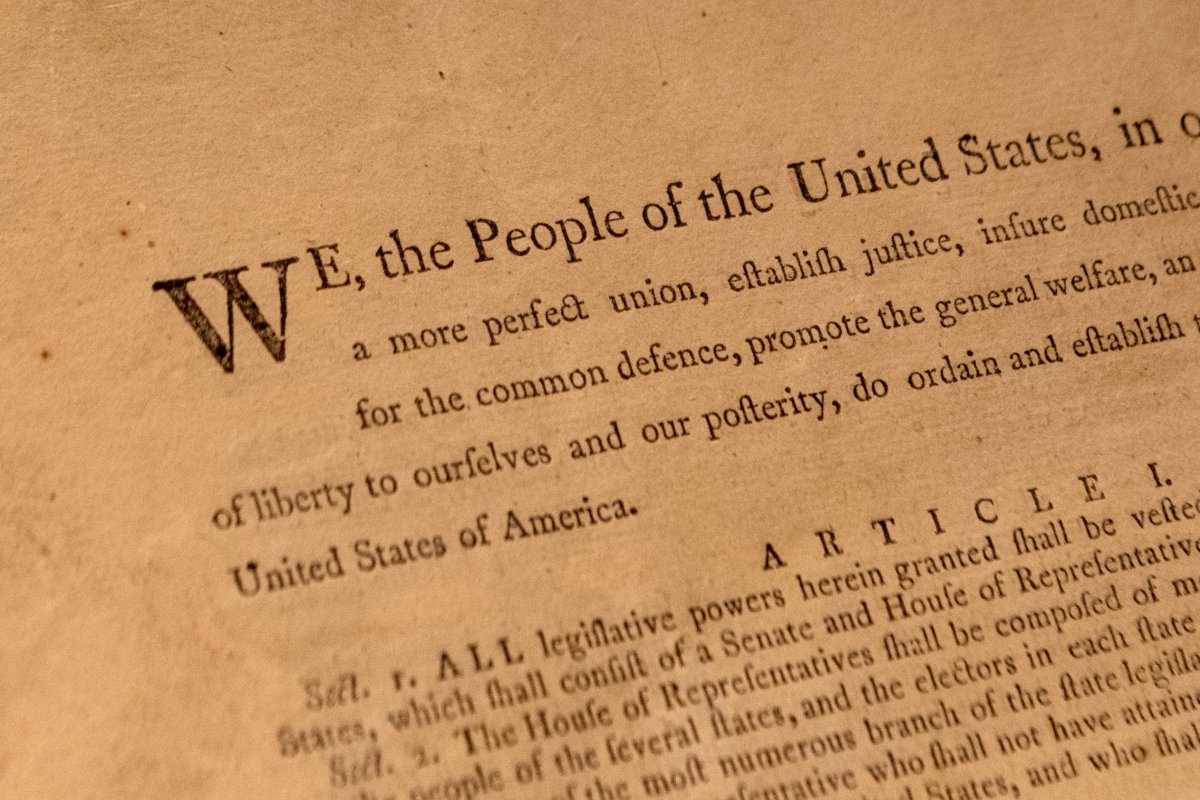Facing a largely ineffective Congress, an overstepping Supreme Court, the rising threat of authoritarianism, and a government seemingly unable to address many of our most pressing problems, a small but growing number of liberal scholars and commentators have been making a strong case against a previously sacred cow: the U.S. Constitution.
Among the biggest issues they cite are the amendment process (which makes changes virtually impossible), excessive veto points, the Electoral College, lifetime appointments for Supreme Court justices, a first-past-the-post (winner-take-all) electoral system (rather than, say, proportional representation), and a grossly disproportionate Senate that ensures greater power for the mostly white, more rural small states at the expense of larger ones.
Many of these issues make the Constitution irredeemable, as these revolutionary thinkers see it.
Chris Edelson, an assistant professor of government at American University, is one. He fears our system has just gotten far too undemocratic.
"There's not just one way to do democracy, but the way we're doing it now is bizarre," he told Newsweek, "because it allows people to win victories in the presidency or control the Senate, the House, and state legislatures without actually getting the most votes."
Yet the Constitution acts as an impediment to any serious change.
Edelson explained, for instance, how Article V essentially enshrines the disproportionate Senate: "Article V says you can't change equal suffrage for the states [in the Senate] without their consent," so to abolish the Senate you would need it to be unanimous. Wyoming or Alaska could veto the entire effort.
He said we should take inspiration from the Founders and their better ideals, but not be beholden to all of their outdated notions.
"As the framers themselves recognized, the Constitution replaced their own failed document, the Articles of Confederation—it didn't work, so they threw it out. I think we have to do the same thing today. That doesn't mean everything from the Constitution goes—some principles are worth preserving: freedom of speech, protections from the Bill of Rights ..."
Yet the Trump presidency, he said, along with Jan. 6, and the rising tide of autocracy have demonstrated the severe weaknesses of the Constitution.
Political science professor Terry Moe of Stanford University, co-author of the constitutionally critical Relic, also hasn't shied away from addressing the elephant in the room.

"The simplest way to put it is the Constitution was written in 1787, and the framers designed a government for a tiny, primitive, agrarian nation of some 4 million people," he said. "And they designed a government for their times; not for our times. Government wasn't expected to do very much back then and they designed a government that couldn't do very much."
While recognizing the difficulty of changing the Constitution, Moe has a hard time seeing how we can address the major issues of today without drastic reform or replacement: "What we need is a government that's designed to solve problems, not a government that was designed more than 200 years ago for a primitive, agrarian society."
Much like Edelson and Moe, Sanford Levinson, a professor of law at both Harvard University and the University of Texas at Austin, and author of Our Undemocratic Constitution, considers our affinity for the Founders and the Constitution to be peculiar.
"Our devotion to the framers and to the Constitution [is] a strange custom that if you discovered it in a foreign tribe, you would come back and say 'This is really odd.'" He added, "The national Constitution is treated really as a sacred book and to talk about amendments is almost blasphemous."
This resistance to change has truly hurt us, Levinson contended. He noted that no such unequivocal veneration has afflicted the state constitutions, which we should study and learn from, he said, but don't: "The average among the 50 states is just short of three different constitutions per state. I think New York is on its fifth constitution ... Illinois is governed by its 1972 constitution, as is true of Montana."
Alabama enacted a new constitution in 2022, after amending the previous one nearly a thousand times.
Others have been sounding alarms as well. Jamelle Bouie of The New York Times has broached the topic of a new constitution in his columns, and historian Jill Lepore has written in both the Times and the New Yorker about our ridiculous amendment process.
It's possible that we're beginning to see somewhat of a change in public opinion—in part, perhaps, because of the willingness of some to dive into these previously toxic waters, and perhaps because the threats to democracy suddenly seem so very real.
This is not to say that hosting a new constitutional convention would not come with certain risks. Moe, Edelson, and Levinson all expressed fears that the far-right could look to hijack the effort. In fact, figures like former Pennsylvania Senator Rick Santorum and others on the right are busy trying to do so.
Yet the dangers of inaction are also very real, they said.
"In ordinary times, I would never propose this," Edelson said. "It would just be too risky. The only reason I advance this is because, on the path we are currently on, I don't see a path forward for democracy."
Ross Rosenfeld is a political writer and educator based on Long Island.
The views expressed in this article are the writer's own.
Uncommon Knowledge
Newsweek is committed to challenging conventional wisdom and finding connections in the search for common ground.
Newsweek is committed to challenging conventional wisdom and finding connections in the search for common ground.
About the writer
To read how Newsweek uses AI as a newsroom tool, Click here.








